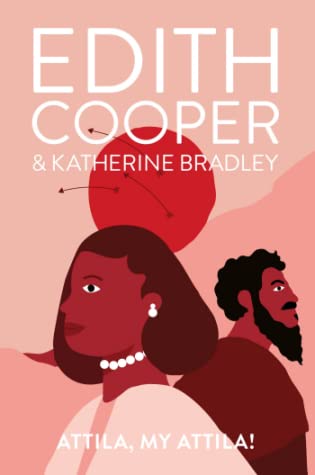
This was one of the books included as part of the Reclaim Her Name campaign, which republished a series of historic pieces of writing which had been written by women who had to use male pseudonyms due to the misogyny of their time.
Attila, My Attila! was a play originally published under the name Michael Field, though was written by two woman named Edith Cooper and Katherine Bradley, a couple… although while the introduction in my edition is quick to tell us about the romantic nature of their relationship, it doesn’t draw attention to the fact that they were also aunt and niece… so, yeah. That could be kind of dodgy. But, anyway, that’s kind of irrelevant to the quality of their work.
The play is about the historic figure, Honoria, the sister of Valentinian III, the Emperor of the Western Roman Empire. She grows frustrated with the way in which her fate is left in the hands of others, especially when it comes to decisions about her marital status. She wants to be free to have relationships with anybody that she wants (including sexual relationships) and hates having to save herself for a husband who will be chosen for her. Because of all this, she’s constantly in contention with her mother and others who wish her to play the part that they expect of her. Ultimately, this all encourages her to take an interest in Attila the Hun, who is a rival to her brother on the world stage. It’s an interesting story, especially as it actually happened in reality.
I quite like the character of Honoria and her struggles against authority and I was also very fond of of the two chamberlains, Satyrus and Eugenius, both of whom play pretty major roles in the story and who have, what I felt like was, a fairly comical rivalry between them. Her mother, Galla Placidia, however, came across as a very unpleasant person (and intentionally so).
Contemporary critics of “Michael Field” were very positive about their work and even compared it to Shakespeare, though this praise disappeared once they were outed as two women. However, I think it’s a pretty fair comparison. Obviously, they were writing about three hundred years apart, so there’s nowhere near as much of the archaic language that you’ll find in something by Shakespeare, but the way that the characters behave feels very similar and so does the tone – then there’s also the fact that its a dramatisation of historic events, again, like Shakespeare.
I wouldn’t say that this particular play is better than the best of Shakespeare, but I certainly liked it more than some of what I’ve read by him. Though it is good, I do also appreciate that it’s quite a niche appeal, but if you like Shakespeare or the history of the Roman Empire, then you may well enjoy this.
Score: 7.4/10
